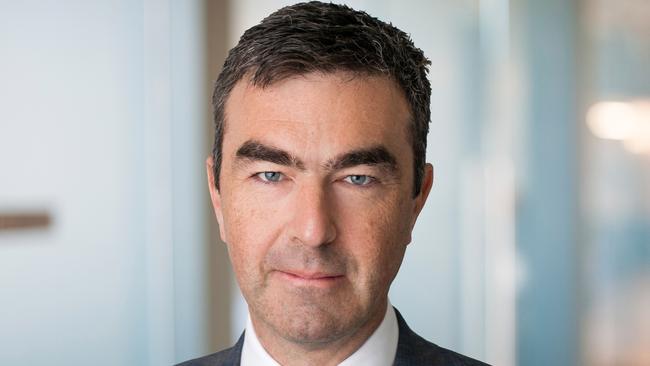Top law firm warns of infrastructure crisis
Australia is heading for an ‘infrastructure delivery crisis’, warns Matthew Croagh, local head of global law firm Pinsent Masons.

Australia is heading for an “infrastructure delivery crisis” in which leading contractors are being discouraged from bidding on major projects because state governments are forcing them to take on too much risk.
The warning has come from the Australian head of global law firm Pinsent Masons, Matthew Croagh, who says the approach to contracting by state governments is out of step with more collaborative models adopted overseas, including in Britain.
Mr Croagh, appointed the firm’s new national leader in May, said taxpayers would ultimately lose if governments could not attract leading construction companies to deliver key infrastructure projects. “If we can’t attract efficient, sophisticated and substantial construction companies to participate in the market, the taxpayer will end up paying much, much more,” he said.
His warning comes after Pinsent Masons dealt another blow to rival Norton Rose Fulbright by poaching the head of its Australian construction and engineering team, James Morgan-Payler, leading construction and engineering partner Mark Waddell, and nine other lawyers. It has also hired two lawyers from elsewhere.
The hiring spree is part of Pinsent Mason’s expansion in Australia. The firm, which ranks among the world’s top 100 law firms by revenue, opened its doors in Australia in 2015 with five partners and one other senior lawyer in Sydney and Melbourne.
It now has 19 partners and 53 other lawyers and has also opened a Perth office. “The global strategy is very clearly to be recognised as an international market leader in our chosen global sectors,” Mr Croagh said.
“When that translates to Australia, we are focusing on two market sectors: infrastructure and energy.”
About half of its clients are based in Australia and half are global clients of the firm. It acts for most of the major Australian contractors, many of which also have overseas operations.
Mr Croagh said he was concerned the pool of Australian contractors willing to take on “massive” local projects was shrinking.
“Our ability to continue to efficiently deliver infrastructure into the future is under threat,” he said.
“We’re seeing a smaller pool of capable Australian contractors who are able to deliver these massive or ‘mega’ projects.
“They are fraught with an onerous risk allocation, which makes it very difficult for the contractors to profitably carry out these projects. If they can’t profitably carry out these projects they won’t continue to bid, and if they don’t continue to bid we’re going to have real problems delivering much-needed infrastructure.”
Mr Croagh said the dispute over the Sydney light rail project was a “classic example” of the risks contractors were facing. The NSW government agreed in June to settle it by paying $576 million in compensation to construction company Acciona. The company had sued for misleading and deceptive conduct in April last year, seeking $1.2 billion related to the cost of digging up and replacing powerlines.
Construction giant Lendlease also recently walked from the $729m Sydney Football Stadium rebuild after successfully demolishing it because it could not agree to terms with the state government, and it withdrew its initial bid to construct the $344m Art Gallery of NSW expansion. Mr Croagh said he could not comment on recent events involving Lendlease.
However, he said he believed state governments were trying to transfer too much risk to contractors that they could not properly price, manage or control — and even some risks the government was in a position to influence.
He warned this was leading to an infrastructure delivery crisis and said Australia needed to look to the rest of the world to see how they were delivering major projects.
He said Pinsent Masons was well placed to contribute to dialogue about the “world’s best approach”, because of its involvement in infrastructure markets across the globe.
In Britain, he said the government had a more collaborative contract model, which involved the early identification of risk, and a focus on working with companies to manage those risks rather than on “disputation”.
Despite the challenges, Mr Croagh said he believed the infrastructure boom on the eastern seaboard had many years to run.
The firm did not have “overly ambitious” plans for further growth, he said, but he expected within five years it would grow to about 30 partners and 70 other lawyers. He revealed it was contemplating expanding “into one more market sector”.
Globally, the firm focuses on three other sectors besides infrastructure and energy — real estate, financial services and advanced manufacturing and technology.
Mr Croagh said real estate was one sector the firm was assessing in Australia, but it would be “careful” and “strategic” about any potential expansion, and it would be led by its clients.
The firm was not trying to be all things to all people, he said. For example, if clients needed high-end tax advice, they sought it from other firms.
“We’re very careful about sticking to what we’re good at,” he said. “We understand that our clients have relationships with other firms who they go to for those things.”
Mr Croagh insisted the latest lateral movement of lawyers from Norton Rose Fulbright did not constitute a “raid” on his former firm.
“I’ve got great regard and affection for Norton Rose, where I spent almost 20 years,” he said.
The 47-year-old made the leap to Pinsent Masons in 2017 with three other Norton Rose partners.
He replaced David Rennick as the firm’s Australian head, and is also its Melbourne head. Mr Rennick remains a member of the firm’s global board and Asia-Pacific Operations Committee.



To join the conversation, please log in. Don't have an account? Register
Join the conversation, you are commenting as Logout